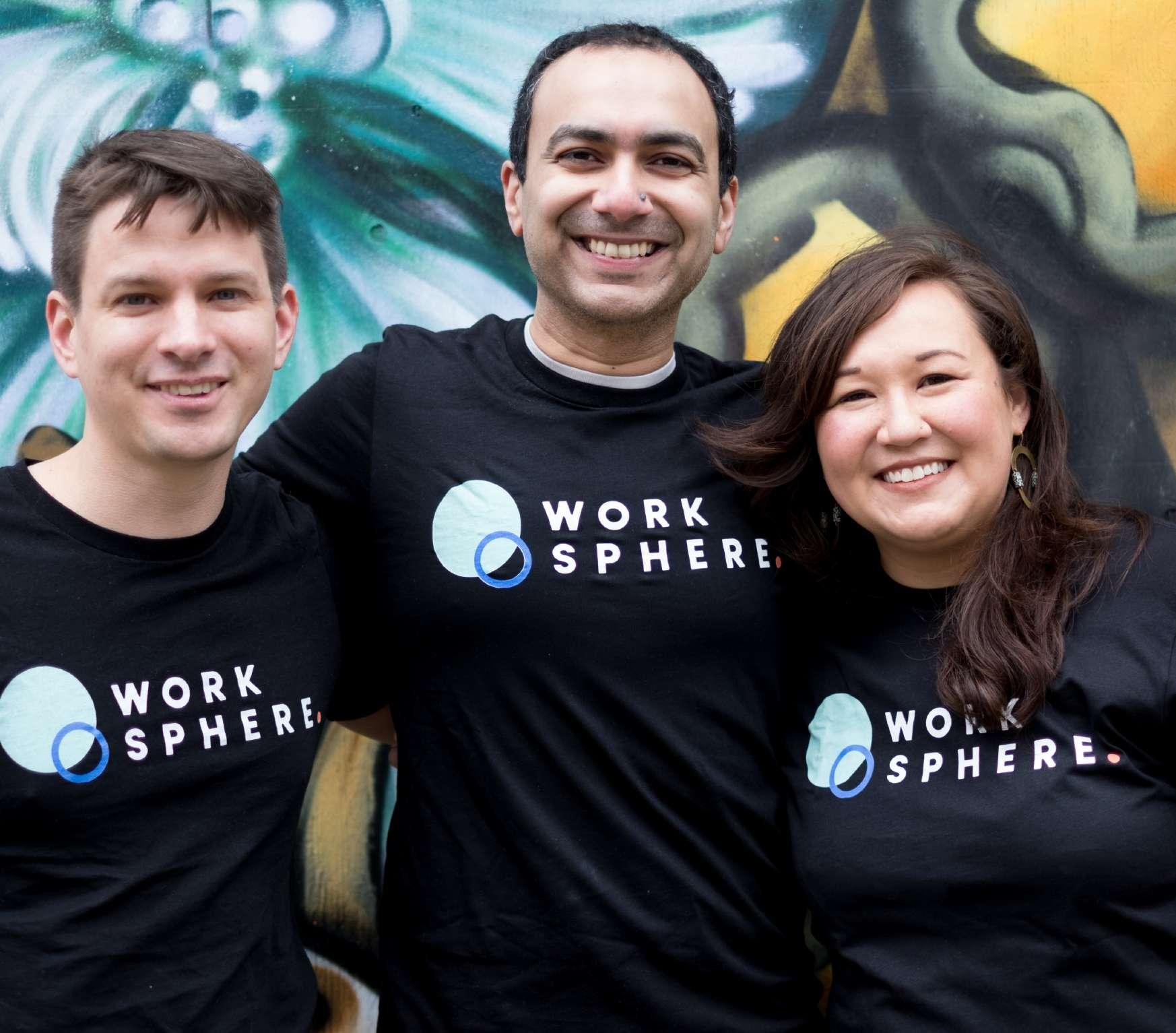
3 minute read
Successful Hybrid ‘Worksphere’ - In Talk With Theresa Klaasen
Successful hybrid worksphere
In talk with Theresa Klassen
Advertisement




Work Sphere
Gaper’s Director of Business Development Mark Allen sat down with Theresa Klassen, co-founder of Worksphere. Worksphere enables businesses to create a safe and flexible hybrid work space. It also offers safety features that push notifications for people to take their symptoms screening, vaccine tracking, capacity planning and capacity limit to their inter social distancing. Businesses can see these insights to see if they are meeting regulatory needs and make sure their office is the right size for the teams they work with. Worksphere manages distributive teams for clients, managing availability of space for their remote distributive market. The past couple of years have generated a need for tools for mid market sized businesses that didn’t have a need for an office management platform before and who are now more flexible with hybrid systems. Before the pandemic, the company followed more of an in-person, office-based work system five days per week. Worksphere now provides a hybrid option: a space where employees can come in, and collaborate when they all need to sit around a white board or have lunch with colleagues once a week. It tracks what days employees are coming in, when they are coming in, and who else is coming. One can filter by team and department and see the relevant data. It also compares productivity data. Prior to Worksphere, Theresa worked as Director for Operation and Customer Success for a tech-enabled platform, Leash. She manages sales teams and customer success now at Worksphere.
WORKING WITH A HYBRID SYSTEM Worksphere was founded at the start of the pandemic in 2020. It was working primarily with HR facilities & office managers. But soon it adopted a hybrid system of work. The hybrid model provides a convenient means for people to have balance in their lives. Worksphere has a kind of blended team where


employees come to the office a couple of days a week but work from home otherwise. The company has a workplace management platform that allows employees to schedule in-office time to reserve desks. REMOTE WORK FOR THE FUTURE? On whether Worksphere will continue with the remote system, Theresa thinks they are equipped with a hybrid model better than anybody. According to surveys, 70-80% people prefer a split office space on a remote schedule. For companies that want to be competitive in terms of attracting the best talent and also for companies that want their employees to feel happy and have balance in their lives, this is really the right way to go. Remote system also allows businesses to be more efficient about their time and money. The added flexibility also opens up more options for companies in terms of how they want to use their office base.
THE FUTURE FOR WORKSPHERE? Theresa and her team have seen immense growth with Worksphere in the past year. Interestingly, she notes that employee sentiments don’t tend to stick when it comes to coming to the office. So, while the easing of pandemic restrictions may make people eager to come back to the office, they only end up coming once or twice a week. The business’ flexibility has allowed it continue serving its clients despite the pandemic uncertainties. This is yet another lesson in the array of those that we learnt in the past two years that keeping room for change will only benefit you in the long run.




